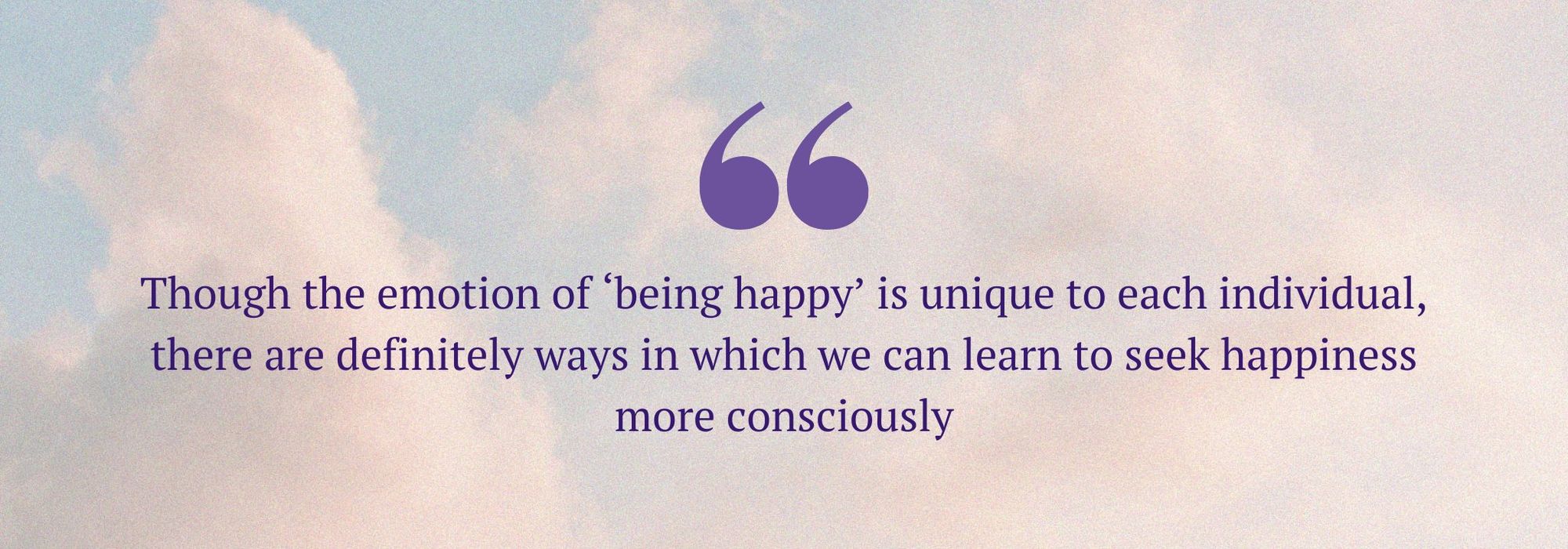In our search for happiness today, perhaps we just need to heed the words of one of the ancient world’s greatest philosophers
The question of how to live a happy life is one of the most fundamental in all of philosophy.
On some level, it shapes pretty much every decision we make in this life – from the career we pursue, to where we would like to live and any ambitions we would like to achieve.
And, the same can be said for much simpler decisions, too. For example, how we spend our spare time, or what we choose to eat for dinner, or even why you might be reading this article right now! Essentially, it all comes back to one core decision: “Will doing this particular thing make me happier or unhappier?”
But while seeking happiness sounds relatively simple in theory, the reality can actually be much more confusing. Because what if the thing that seems to make you happy now, eventually starts to make you unhappy? Or what about the times when happiness is here one moment and then, for no real reason, starts to fade – like when you buy a new jacket which brings such joy on the first wear, but within a few months just gets lost in the back of your wardrobe?
It happens a lot, doesn’t it?
And, from the opposite angle, too. What about all the times when, in order to pursue happiness further down the line, we may have to do something which makes us unhappy in the short term – like dealing with a difficult task at work, or struggling through a tiring workout at the gym?
When all of this comes into the equation, too, it seems like happiness becomes more and more intangible; akin to looking for the metaphorical pot of gold at the end of the rainbow, or, at worst, leaving us wondering whether happiness exists at all.
But fortunately, this is where philosophy can help us.
Though the emotion of ‘being happy’ is unique to each individual, there are definitely ways in which we can learn to seek happiness more consciously. And perhaps the most beautiful insight into how we can do this comes from the work of one of history’s most famous philosophers.
I’m sure most of you reading this will be familiar with his name: Aristotle, the great polymath of ancient Greece and, later in life, the teacher to none other than Alexander the Great.
His ideas have shaped Western society for almost 2,500 years. Yet, ironically, he is somewhat neglected these days, due in part to his reputation for being a bit of a bore.
In fact, if I ever happen to mention Aristotle in conversation, I can immediately see my friends’ eyes glazing over! As if his name alone represents a ‘high-brow’ side to philosophy that is only ever long-winded and unrelatable.
But, rest assured, my purpose here is not to argue his defence, or stray into the academic sides of his ideas.
Rather, I’m looking for something a lot simpler. His insights about how we can find happiness.

And, in his book The Nicomachean Ethics, Aristotle sets out a wonderful little model for how we tend to seek happiness in three key ways:
Through pleasure: by sensory experiences, foods, listening to music, thrill-seeking, adventures, and so on.
Through public acclaim: which includes any ambition of achieving reputation/fame in our career, but, more often, deals with the much more common habit of seeking approval from friends, family, or colleagues, etc.
Through contemplation: or, in other words, finding happiness internally, rather than externally.
Now of course, given what we have spoken about already, we can already see that there will always be problems with those first two methods.
Through pleasure and sensory experience, we tend to find momentary enjoyment, but never really the lasting feeling that we seek.
And through seeking the approval of others, we may become prone to becoming a bit of a people-pleaser. Or, worse, we start to lose sight of our own self, simply because we are so fixated on how others are perceiving us.
Whereas, with the final method – seeking ‘contemplative’ happiness – the result is entirely different.
Here, we are no longer dependent on externals to provide for us. Rather, we learn that there is an internal kind of happiness – coming in the form of dreams, imagination, reminiscing, or just the simple joy of sitting and being present in the moment – which may not be quite as thrilling as the others, but which is certainly a lot more dependable!
Contemplative happiness can be found in a tangible activity like meditation, where the whole purpose is essentially to centre the mind, and find peace in being present. But that is only one option. Because much like with the mindfulness practices mentioned in a lot of Eastern philosophy, absolutely anything can be transformed into a contemplative process.

We might choose to create art, or make music, simply for the joy of creating, rather than the aim of being admired for what we have created.
Or we might exercise to appreciate movement, rather than to attain a certain ideal image.
Or we might even approach something like cleaning the house as a contemplative activity, and thus genuinely enjoy the achievement of making our environment feel that little bit fresher.
In short, there are endless possibilities.
And this is the beauty of what is being suggested here. Because by encouraging contemplation, Aristotle is not advocating for asceticism or denial of the senses.
As he explains elsewhere, a truly happy life should ideally include being fulfilled in as many aspects as we can – health, wealth, knowledge, relationships, career achievement, and so on.
But through it all – if we approach our life from a contemplative perspective first, rather than inaction only – we will slowly learn that we can be happy with or without these external influences.
And, as a result of this realisation, any happiness we gain becomes much more secure. Like bathing in a beautiful calm ocean, rather than being tossed around constantly by the waves.


Comments